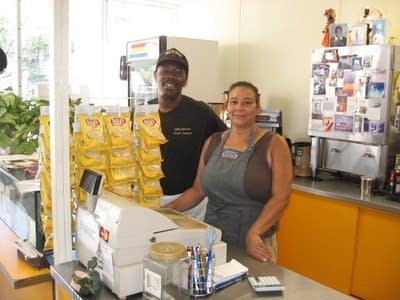Do Minneapolis neighborhoods feel a drop in crime?
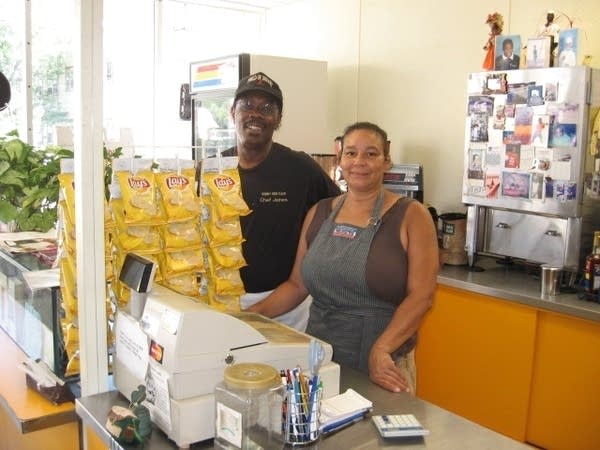
Minneapolis police officials say since the summer of 2006 violent crime in north Minneapolis has fallen by nearly 40 percent.
They credit the dip in crime to an increase in police officers, a crackdown on juvenile offenders and the introduction of security cameras and a gunshot detection system.
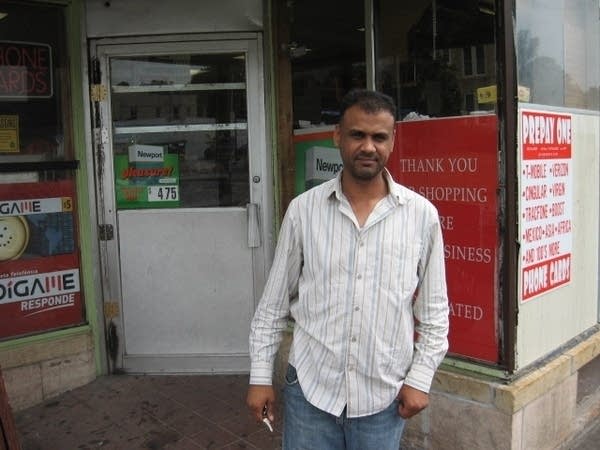
If you live in north Minneapolis, your perceptions of crime depend on what part of the northside you live in.
Adil Al Bosaad runs a corner store near the intersection of Emerson and Lowry Avenues.
Create a More Connected Minnesota
MPR News is your trusted resource for the news you need. With your support, MPR News brings accessible, courageous journalism and authentic conversation to everyone - free of paywalls and barriers. Your gift makes a difference.
"Prices have gone up. Super America dollar for that. You wanna bet?"
One of Bosaad's customers grumbles at the rising price of peanut M&M's. The man is a few cents short, but Bosaad lets him take his candy.
Bosaad has been in business for about 14 years. He's seen ups and downs in crime. Bosaad says right now, things are a lot more peaceful than they were around this time last year.
It could be because of the major redesign of Lowry Avenue or the police crackdown on the Tre Tre Crips gang.
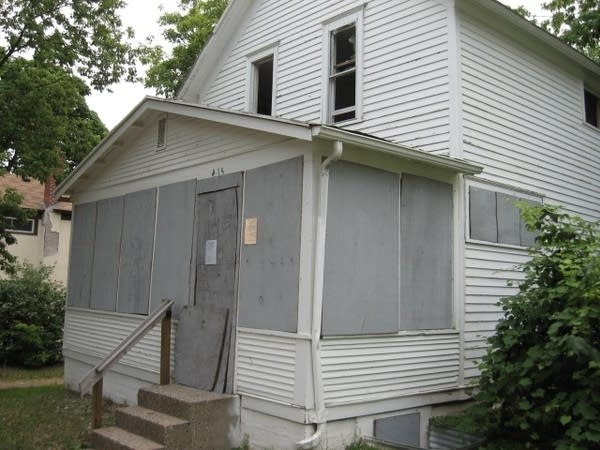
"I don't know if the construction had something to do with it. But still, we had those gangbangers, called 'Tre Tre' - most of them in jail right now. I don't know if know that. Most of them in jail. That's why the neighborhood quiet down a lot," Bosaad said.
Late last year, police arrested nearly two dozen members of the notorious street gang. And police officials say the rebuilding of Lowry avenue has pushed crime away from the street.
But Bosaad said he still has problems with crime.
"Some guy, I asked him to move away from the store, he came in and broke all windows on the premise. Just break all windows and left. Hit our cameras," Bosaad said.
James Kpoto has lived in the Jordan neighborhood for the last eight years. There's a light rain falling, so instead of taking a walking tour of his block, we sit on his front porch.
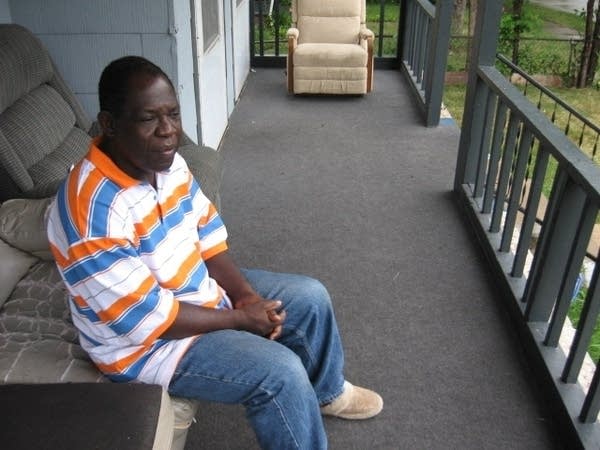
"Do you know the people who live in these houses?"
"I know everybody that live on both blocks. And everybody knows me. The lady who just got in the car is my deputy block leader," Kpoto said.
Kpoto was born in Liberia, but left in the late 90s as factional war in his home country raged on.
He said that's one of the reasons he gets particulary angry when he hears gun shots in the neighborhood. He's heard enough gunfire in his life.
Kpoto said lately, the gunshots are fewer and far between. But in the last few weeks, he's seen signs that another uptick in crime may be on the horizon.
"I seen a lot of drug houses popping up again. Especially farther down. Because I know from watching TV when people put their sneakers on the telephone poles or on the stuff, it's a sign of drug dealing going there," Kpoto said.
Kpoto has also seen other signs, like more traffic around certain houses and a few dealers walking the streets. He said, when the crackhouses return, so does the violence.
The Harrison neighborhood is about half of a mile south from James Kpoto's block. Glenwood Avenue is one of the main thoroughfares here and it's where Alice and James Baker own and operate the Sunny Side Cafe.
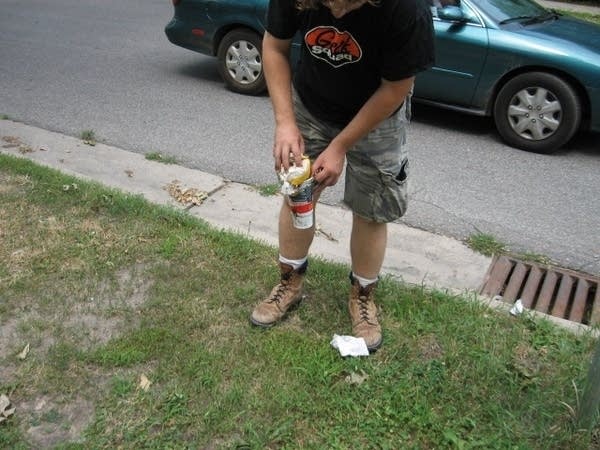
The Bakers say traditionally this part of the northside is quieter than other neighborhoods. So they haven't noticed a big change in the amount of crime.
But Alice Baker said it can take longer for police to respond to her calls, because officers are busy in the higher crime neighborhoods.
"For example, when we had an incident - when two boys who were caught on camera breaking the window - and they came back by, and I tried to call the police - it took them two and a half hours. So the boys stood here taunting me, arguing with me," Baker said.
But Alice said when the police did come by, she told the officers she didn't want the young men to get arrested. She didn't think it would do much good.
Police officials credit much of the drop in crime to targeting juvenile offenders. But James Baker said the police can't provide the kind of guidance some of these young people need.

He says the problem with the young loiterers he shoes away from out in front of his restaurant, is that they don't respect their elders.
"They don't want to hear nothing I got to say. And the reason I say that, is that they always they always want to refer to me as 'pops.' -- 'Pops, you better go back inside.' -- And it's like, O.k. you're right, but it's Mr. Pops to you. And you don't own this corner," Baker said.
Baker added the familiar lament heard within the black community, that too many young men are growing up without fathers and positive role models.
In the two weeks since Minneapolis police officials announced the drop in crime rates, three men have been killed on the northside.
Crimes like these continue to make some north Minneapolis neighborhoods more violent than other parts of the city. It's a trend that police and residents say they want to end.
